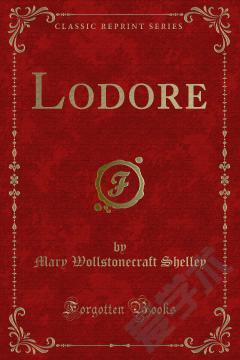Lodore
Absent or dead, still let a friend be dear,A sigh the absent claims, the dead a tear.Pope.In the flattest and least agreeable part of the county of Essex, about five miles from the sea, is situated a village or small town, which may be known in these pages by the name of Longfield. Longfield is distant eight miles from any market town, but the simple inhabitants, limiting their desires to their means of satisfying them, are scarcely aware of the kind of desert in which they are placed. Although only fifty miles from London, few among them have ever seen the metropolis. Some claim that distinction from having visited cousins in Lothbury and viewed the lions in the tower. There is a mansion belonging to a wealthy nobleman within four miles, never inhabited, except when a parliamentary election is going forward. No one of any pretension to consequence resided in this secluded nook, except the honourable Mrs. Elizabeth Fitzhenry; she ought to have been the shining star of the place, and she was only its better angel. Benevolent, gentle, and unassuming, this fair sprig of nobility had lived from youth to age in the abode of her forefathers, making a part of this busy world, only through the kindliness of her disposition, and her constant affection for one who was far away.The mansion of the Fitzhenry family, which looked upon the village green, was wholly incommensurate to our humblest ideas of what belongs to nobility; yet it stood in solitary splendour, the Great House of Longfield. From time immemorial, its possessors had been the magnates of the village; half of it belonged to them, and the whole voted according to their wishes. Cut off from the rest of the world, they claimed here a consideration and a deference, which, with the moderate income of fifteen hundred a year, they would have vainly sought elsewhere.There was a family tradition, that a Fitzhenry had sat in parliament; but the time arrived when they were to rise to greater distinction. The father of the lady, whose name has been already introduced, enjoyed all the privileges attendant on being an only child. Extraordinary efforts were made for his education. He was placed with a clergyman near Harwich, and imbibed in that neighbourhood so passionate a love for the sea, that, though tardily and with regret, his parents at last permitted him to pursue a naval career. He became a brave, a clever, and a lucky officer. In a contested election, his father was the means of ensuring the success of the government candidate, and the promotion of his son followed. Those were the glorious days of the English navy, towards the close of the American war: ad when-that war terminated, and the admiral, now advanced considerably beyond middle life, returned to the Sabine farm, of which he had, by course of descent, become proprietor, he returned adorned with the rank of a peer of the realm, and with sufficient wealth to support respectably the dignity of the baronial title.
{{comment.content}}








 京公网安备 11010802027623号
京公网安备 11010802027623号